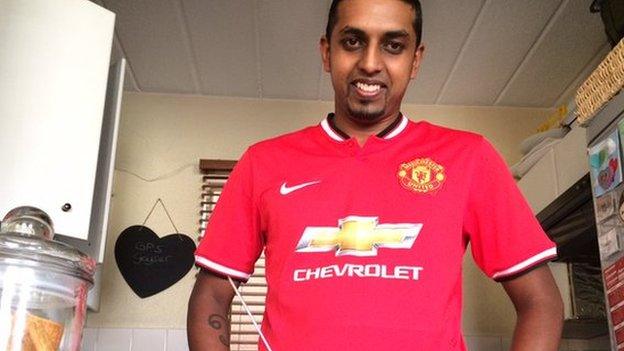Sunderland bids to become Africa's favourite Premier League football club
- Published
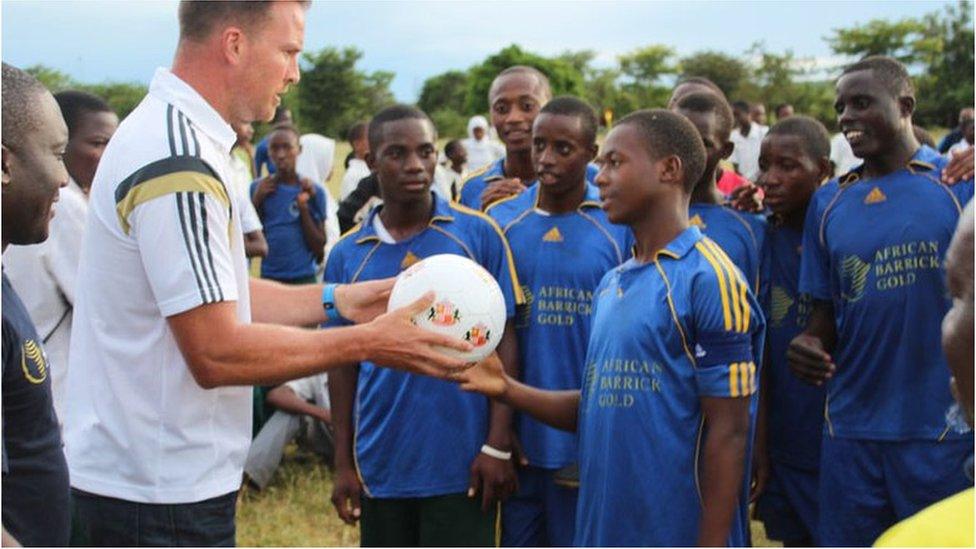
Graham Robinson, head of international football development at Sunderland (left), says Sunderland wants to be "that next club which everyone wants to support"
England's football Premier League has long had a huge following in Africa, mainly concentrated on Arsenal, Manchester United, Liverpool and Chelsea. Now relatively little-known Sunderland is launching the latest element of its strategy to become Africa's favourite English club.
The club will open a youth sports park it has bankrolled together with its partners in Tanzania at the weekend.
The park in the main city Dar es Salaam is meant to provide "sports and healthy lifestyle education opportunities" for Tanzanian youths.
Named after the country's president Jakaya Mrisho Kikwete, the JMK Youth Park is a partnership between Sunderland and Symbion Power, a US power firm with operations in Tanzania, which is bankrolling the project.
"We hope the JMK Youth Park will benefit a new generation of sporting stars in Tanzania, providing the perfect platform for youngsters in Dar es Salaam to nurture their talent and further develop themselves," Sunderland's CEO Margaret Byrne told the BBC.
The park has a 3G artificial turf football pitch, two five-a-side pitches, one sand-based pitch, two basketball courts, and floodlights so it can be used in the evenings.
The launch of this park is the latest in a long list of links between the club - also known as the Black Cats - and the African continent. Its involvement on the continent ranges from training coaches, young footballers and helping build the capacity of African football clubs.
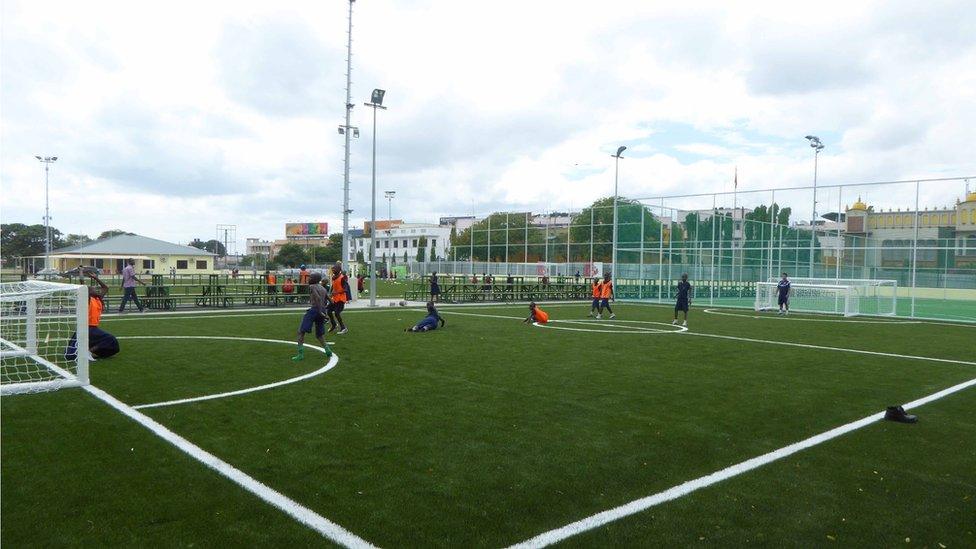
Five-a-side pitches are one of the many facilities at the new youth park
New identity
"Everyone follows Manchester United, Arsenal, Liverpool or Chelsea but after those, the rest of us in the Premier League are pretty much the same. What we want is to be that next club which everyone wants to support," said Gary Hutchinson, Sunderland's commercial director.
Sunderland's relationship with the African continent started in 2012 when it landed a kit sponsorship deal with oil company Tullow.
As part of the deal, they wore football shirts branded with the slogan "Invest in Africa." With this newfound identity, it announced its arrival on the continent.

More from Stanley on Africa's love of the Premier League:
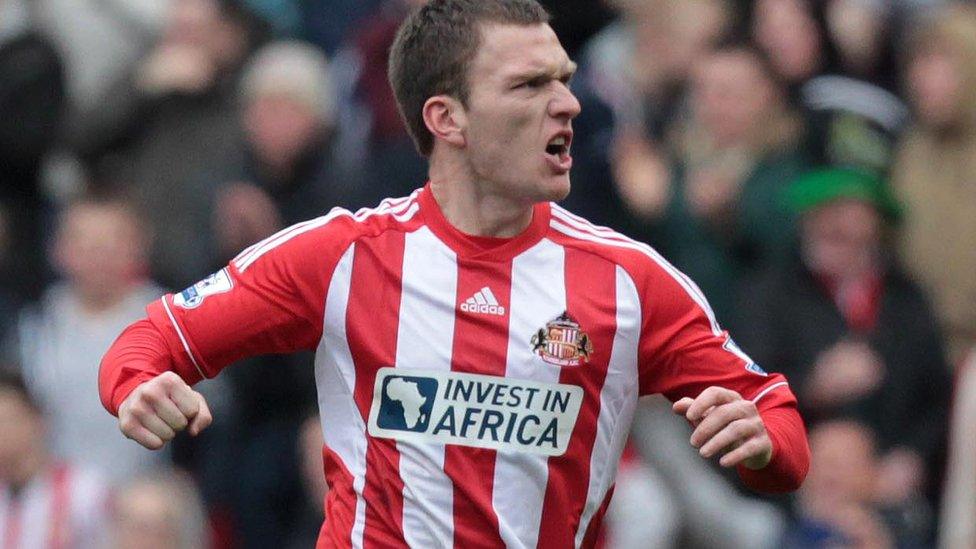

So why is Sunderland investing in Africa while other Premier League clubs are looking east to China or west to the United States?
"This will introduce people to Sunderland and help forge meaningful relationships with future supporters in Tanzania," says Ms Byrne.
Perhaps the other reason lies in the numbers.
There are more than 200 million followers of the league in sub-Saharan Africa, according to figures from the Premier League.
It is also a good publicity opportunity to build brand awareness - it is the only club that has had principal sponsors from Africa, in the form of South African company Bidvest.
Struggles on the pitch
Even though the club is not one of the most popular in Africa, you do now see the odd Sunderland shirt on the continent.
It runs community projects in Ghana, Zambia, South Africa and Tanzania to train grassroots football coaches.
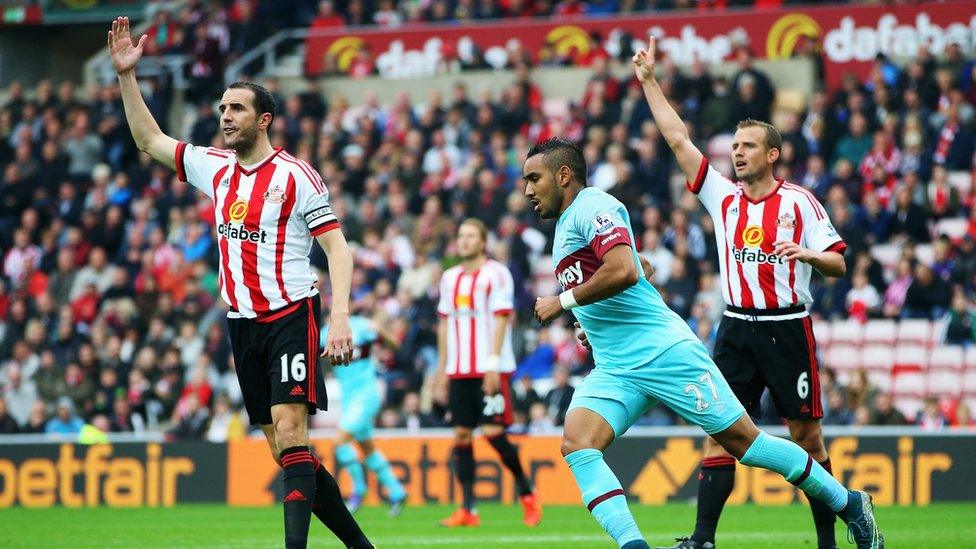
Sunderland hope their fan base will keep growing in Africa - even if they have worries on the pitch
Although the £20m ($31m) shirt sponsorship deal with Tullow has expired, the club's sights are still firmly fixed on Africa.
Last year it swapped the "Invest in Africa" shirts for those bearing the logo of Bidvest, a financial services company. Bidvest now acts as the club's business sponsor at the Stadium of Light Academy following the expiry of its contract as the club's main sponsor.
As in any sport, everyone loves a winner and many Sunderland followers on the continent will be worried about the team's struggles on the pitch. Currently it languishes in 19th out of 20 teams in the Premier League.
Sunderland does not have any African players at the moment but it has a rich legacy of footballers from the continent.
African greats such as Asamoah Gyan, John Mensah and Sulley Muntari of Ghana, Zimbabwe's Benjani Mwaruwari, Patrick Mboma of Cameroon and Senegal's El Hadji Diouf have all worn the red-and-white striped shirts.
These players have helped build a lasting relationship between the club and the African continent.
Perhaps in future, Sunderland can tap into the emerging talent that it is helping to nurture through its sporting programmes.
But in the meantime, the business side of the club is firmly focused on Africa.
"We have a relationship with the Tanzania tourism board to develop their tourism. We promote the destination through the power of the Premier League - it is broadcast in America, Asia and the LCD advertising in our stadium promoting Tanzania as a destination," Mr Hutchinson said.
Inside the club's home ground, the Stadium of Light, the touchline is transformed into a giant advert for tourism in southern Africa and Bidvest business services.
On any given match day, it promotes Bidvest, South African Airways flights, trips to African destinations and holidays in Tanzania's Serengeti National Park and Ngorongoro Crater.
When foreign holiday-makers are greeted by lots of locals wearing Sunderland shirts, we will know the club's mission has succeeded but for now the team has to continue its fight against relegation or else its battle for Africa hearts and minds might die on its way to Championship football next season.
- Published3 September 2015
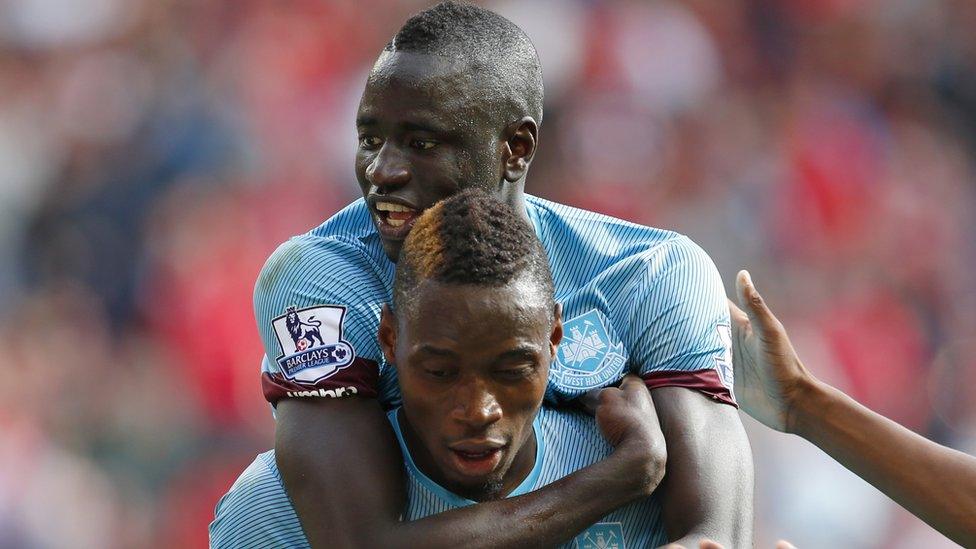
- Published7 August 2015
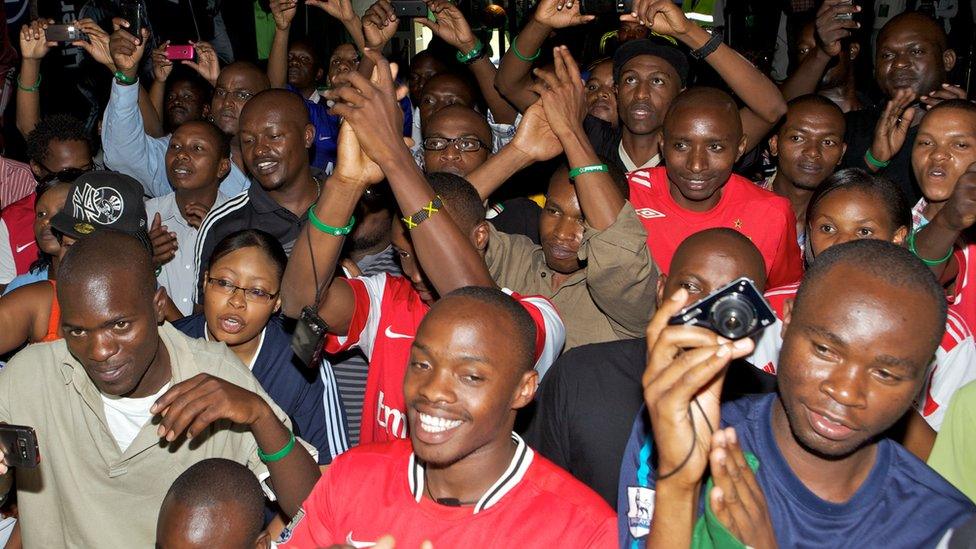
- Published18 May 2015
